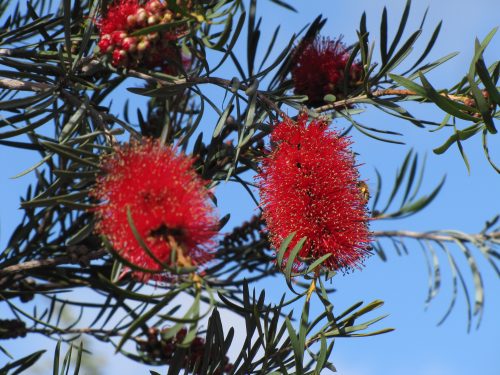
Book Review: The Little Desert.
Text by Colin Thiele.
Photographs by Jocelyn Burt.
Published by Rigby Limited, Adelaide, 1975.
The Little Desert
This is a region in western Victoria, Australia. It is about midway between Melbourne and Adelaide, being about 350km from either city (about 4 hours travel time). It was in earlier times suggested as an area that needed to be cleared from native vegetation and turned into farming land. In the early 1970s, there was a concerted effort made by conservationists to preserve this unique piece of the Australian landscape. Eventually, it was declared a national park and today it is still one of Australia’s most beautiful places to visit.
Not your typical desert
The area known as the Little Desert is not your typical desert. It only has this title due to the soil type. It is very sandy and lacking in essential nutrients, so it would have been very unsuitable for farming without vast amounts of fertiliser. The ‘desert’ as it has always been, and continues to be, is an area rich in plant life. With over 600 species of plants, it is a magnet for botanists, photographers and nature lovers. It also boasts a rich range of native birds and animal species. Most of the national park is covered in mallee trees. Also present in large numbers are smaller shrubby plants and even a range of beautiful native orchids. In the eastern part of the park, one can see larger eucalypt trees, notably along the Wimmera River which flows through this area.
Poetic prose
Colin Thiele’s beautiful book on this area covers some of the history of the conservation efforts to save this little gem in the Australian landscape. He also describes, in evocative prose, the hidden beauties of this landscape, from the dainty Spider Orchid to the enigmatic Malleefowl, an amazing bird found in the park tending to its enormous nesting mound of sand and rotting vegetation which acts as an incubator to hatch their eggs. Much of Thiele’s prose is closer to poetry, and it is no surprise that he is also known as one of Australia’s leading poets. I will review one of his collections of poetry in a few day’s time.
Photography
Thiele’s wonderful prose is accompanied by equally wonderful photographs by Jocelyn Burt. She has provided photos for several of his other books. The photos cover the flowers and other botanical marvels, as well as some of the many species of birds resident in this area. Every double-page spread in this volume has a photo on the right with Thiele’s text on the left; each one complements the other.
My visits to the desert
Even though this beautiful part of Australia is only a few hour’s drive from my home, it saddens me to write that I can only ever recall visiting the Little Desert on three occasions, once to camp in our old tent, now decommissioned due to a leaking roof, and the other times were fleeting half-day visits. I must correct that oversight soon.
Further reading:
- Mallee trees – some of my photos showing the mallee vegetation similar to the Little Desert.
- Malleefowl – photos of this bird and its nest.
- Can I call you Colin? My review of the official biography of Colin Thiele.
- The Valley Between – my review of a Colin Thiele novel.

.jpg)
_small.JPG)


